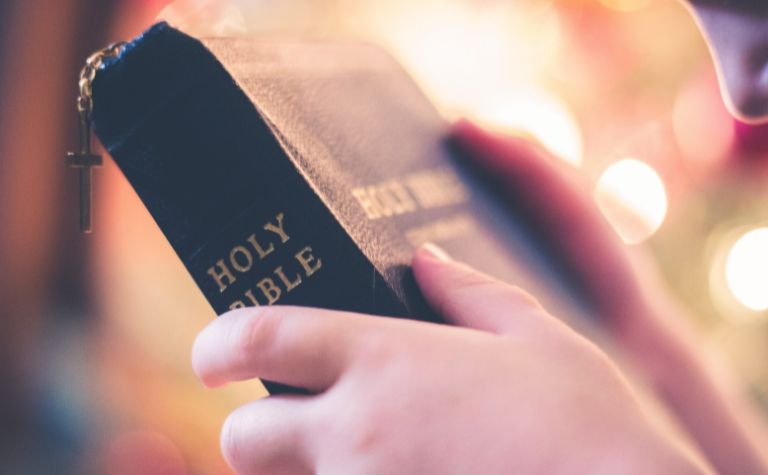In many congregations, the worship pastor plays a pivotal role in guiding the spiritual and musical journey of the congregation.
The responsibility of creating a space where members can connect musically and emotionally to their beliefs is both an art and a discipline.
As worship styles and congregational expectations evolve, so too do the educational paths that can lead one to this dynamic position.
While there is no one-size-fits-all approach to becoming a worship pastor, various educational programs and experiences can significantly aid in preparation.
This article aims to explore the common educational routes and considerations for those aspiring to become worship pastors.

Understanding the Role of a Worship Pastor
A worship pastor stands at the intersection of music and ministry, tasked with the responsibility of leading congregations in musical expressions of worship.
While the primary association might be with leading songs on a Sunday morning, the role is multifaceted and extends far beyond the pulpit.
At its core, the role of a worship pastor is to facilitate moments where members of the congregation can connect emotionally and spiritually through music.
This requires a deep understanding of both musical theory and the spiritual ethos of the congregation they serve.
A worship pastor selects hymns and contemporary songs that resonate with the congregation’s beliefs and current events or themes being discussed.
Moreover, worship pastors often collaborate with church leadership to ensure that the music aligns with the overall vision and message of the church.
This collaboration can extend to event planning, special services, and even community outreach programs.
Training and mentoring other musicians, vocalists, and technical staff is also a significant part of the role.
By fostering a team environment, worship pastors ensure that the musical aspect of services runs smoothly.
In essence, being a worship pastor is about more than just musical talent; it’s about leadership, vision, and creating an environment where music enhances the worship experience for all.

Bachelor’s Degrees Relevant to Worship Ministry
For those aspiring to become worship pastors, a bachelor’s degree can provide foundational knowledge and skills to excel in this unique ministry role.
Various degrees offer relevant training, each with its distinct emphasis.
One common choice is a Bachelor of Arts in Worship Ministry.
This degree integrates biblical studies with practical training in music, helping students grasp the theological principles behind worship while also refining their musical expertise.
Coursework often covers topics like worship theology, songwriting, and music technology.
Another relevant degree is a Bachelor of Music with an emphasis on Church Music.
This program typically delves deep into music theory, performance, and ensemble leadership.
Students learn the intricacies of various musical styles and how they can be applied within a worship setting.
A Bachelor of Arts in Christian Ministry can also be beneficial.
While it might not have the same musical depth as other degrees, it provides a holistic understanding of church operations, leadership, and ministry dynamics, which are crucial for worship pastors who often collaborate with other church leaders.
Additionally, Music Education or Performance degrees can be valuable, especially if coupled with supplemental theology courses or training.
Ultimately, the best degree will vary depending on individual aspirations and the specific needs of the churches or organizations one hopes to serve in.

Master’s Programs and Advanced Training
Pursuing a master’s degree can be a significant next step for those seeking advanced expertise in worship ministry.
These graduate-level programs provide deeper theological insight, leadership skills, and specialized training tailored for worship leaders.
A Master of Arts in Worship Leadership or Worship Studies is one of the popular choices.
These programs usually integrate theology and practical ministry training, emphasizing designing and implementing meaningful worship experiences.
They cover worship history, liturgical studies, and the role of arts in worship, preparing students for traditional and contemporary worship settings.
Another notable option is a Master of Music in Church Music.
This program offers intensive musical training, enhancing skills in performance, conducting, and composition.
Students gain a comprehensive understanding of music’s role in worship and how it can be utilized to engage congregations.
For those interested in a broader church leadership role, a Master of Divinity with a concentration in worship can be advantageous.
This degree provides a robust theological foundation while also offering courses on worship leadership, enhancing the student’s capacity to serve in multifaceted pastoral roles.
Regardless of the specific program, advanced degrees aim to equip worship pastors with the tools to lead effectively, understand evolving worship trends, and address the spiritual needs of diverse congregations.
Essential Skills and Personal Qualities
The role of a worship pastor goes beyond formal education and demands a set of skills and personal qualities that resonate with congregations.
One of the foremost skills is musical competency.
Whether it’s singing, playing an instrument, or understanding musical arrangements, a solid grasp of music is foundational.
Coupled with this is the ability to lead and inspire others, be it a choir, band, or the congregation itself.
Effective communication is another vital skill. Worship pastors often interact with various groups within a church, from the senior pastoral team to volunteers.
Conveying ideas clearly and listening actively ensures smooth collaborations and enriching worship experiences.
Emotional intelligence plays a significant role as well.
Worship pastors must discern the spiritual and emotional atmospheres of services, responding with sensitivity and adaptability.
This discernment aids in selecting appropriate songs and liturgy that resonate with congregants’ hearts and current situations.
Lastly, a genuine passion for worship and a personal relationship with the divine are paramount.
Authenticity in leading worship stems from one’s own connection and commitment to the act of worship.
This sincerity not only sets the tone for services but also inspires congregants to deepen their own spiritual journeys.
Gaining Practical Experience and Building a Portfolio
In the realm of worship ministry, theoretical knowledge from formal education is greatly enhanced by practical experience.
Aspiring worship pastors benefit immensely from hands-on involvement in church services, music teams, or community worship events.
Such involvement allows them to apply what they’ve learned in real-world settings, refine their skills, and understand the dynamics of leading worship.
Practical experience provides the opportunity to navigate challenges, from coordinating with technical teams on sound and lighting to understanding the intricacies of service flow.
Engaging in these activities helps in building confidence and gaining insights that can only be acquired through practice.
Parallel to gaining experience is the importance of building a portfolio.
A well-curated portfolio showcases one’s musical endeavors, leadership roles, and any compositions or arrangements they might have done.
This can be in the form of audio recordings, videos of worship sessions, or even testimonials from fellow church members or leaders.
A comprehensive portfolio not only stands as evidence of one’s abilities and growth but also becomes a pivotal tool when applying for worship pastor positions in churches or religious institutions.
Considering Denominational and Organizational Preferences
Every denomination and organization has its distinct ethos, traditions, and preferences when it comes to worship.
These unique characteristics influence the type of music, the structure of the worship service, and even the instruments that are used.
For an aspiring worship pastor, understanding and aligning with these nuances is crucial.
For instance, some denominations might emphasize traditional hymns accompanied by an organ, while others might lean towards contemporary music with a full band setup.
Similarly, the way worship is structured can vary; some might prefer a meditative approach with periods of silence and reflection, while others might encourage lively, interactive sessions.
Beyond the musical elements, a denomination or organization’s theological beliefs can also influence the worship.
The lyrics of songs, the references made during worship, and even the act of taking communion can differ based on theological perspectives.
It’s essential for worship pastors to be adaptable and open to learning the specific requirements and preferences of the denomination or organization they are part of.
Moreover, clear communication with church leadership can provide valuable insights into the expectations and boundaries set for worship.
Recent Posts
David Jeremiah, a renowned pastor, author, and speaker, has captivated the hearts of many with his compelling sermons. His messages resonate deeply with diverse audiences, leaving an enduring...
Tim Keller, a distinguished pastor, theologian, and author, has garnered a devoted following through the profound impact of his sermons. In this article, we will explore seven compelling reasons...
